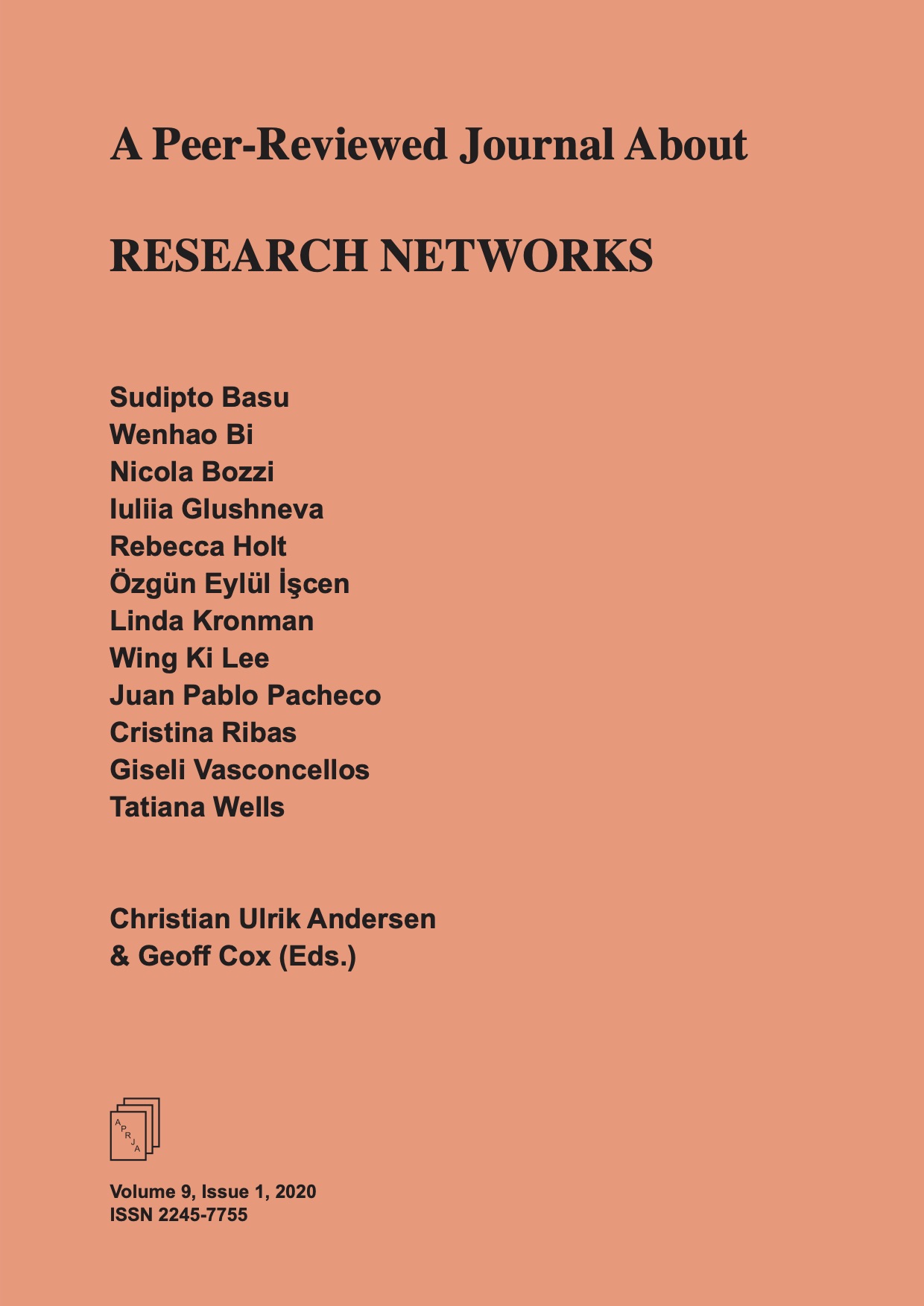Before and After The Network
DOI:
https://doi.org/10.7146/aprja.v9i1.121484Abstract
How do we think about networks under post- digital conditions? What does this imply for research?
This journal issue takes as its outset, the call of the transmediale festival to “[leave] be- hind a decade marked by a backlash against the Internet and the network society” in order to re-evaluate the limits of ‘networks’. It refers to Robert Filliou’s “The Eternal Network,” an idealistic notion from the 1960s, pointing to the interconnectedness of everyday-life actions across an emerging global world at that time. This is a good reminder that network cultures exist beyond the technical reality of network culture as we now know it despite our primary identification of networks with social media and planetary computation. By drawing on the legacies of critical and autonomous network cultures, the aim was to make the limits of Internet-based networks visible but also highlight alternatives. Is there a conceivable counter-power to networks? Which alternative technological models and cultural narratives are needed to construct the principles of end-to-end communication anew? How might the critique of networks extend to non-western contexts and reflect the limits in a global perspective?
To answer such complex questions, this editorial begins by reflecting on the periodizing logic that invites us to leave behind “the backlash against the Internet.” What comes before and after the network?
Downloads
Published
Issue
Section
License
Copyright (c) 2020 A Peer-Reviewed Journal About

This work is licensed under a Creative Commons Attribution-NonCommercial-ShareAlike 4.0 International License.
Copyrights are held by the individual authors of articles.
Unless stated otherwise, all articles are published under the CC license: ‘Attribution-NonCommercial-ShareAlike’.
The journal is free of charge for readers.
APRJA does not charge authors for Article Processing Costs (APC)


